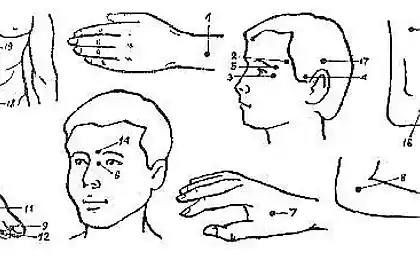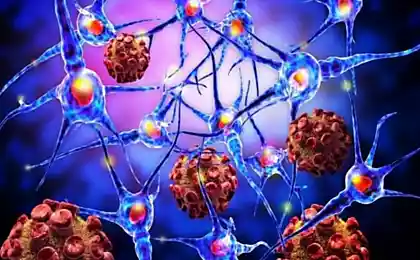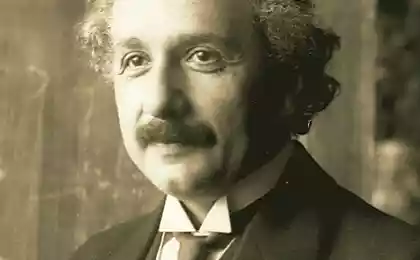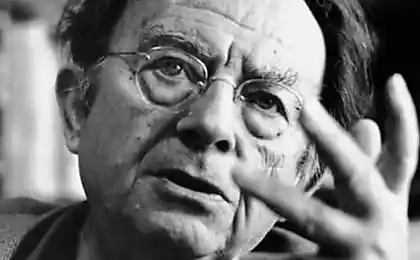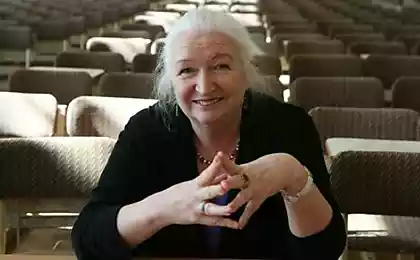758
Who is the genius: a normal person or patient?
Crazy society always had an unhealthy interest, and especially - the great crazy.
"Genius" - the Latin word (genius) and is the highest degree of talent and versatility. Geniuses made to admire, but contemporaries, as a rule, do not like them, sometimes even hate and envy, so that each of Mozart has to at least one of Salieri.
It is believed that a gifted person who has received the ability of nature all my life to get it blithely enjoying free gift. But in reality, these people got on with their creative abilities?
"For a long time, for example, the debate continues around the name of Jonathan Swift, author of Gulliver's immortal. And in the end, the doctors diagnosed him: Mad! "" In support of this theory usually gives three proofs. Firstly, the appointment shortly before his death the official trustees oversee his affairs because of mental incapacity. "Secondly, the progressive loss of memory, inability to recognize even close friends and acquaintances. Finally, efforts to create the first psychiatric hospital in Ireland, which he bequeathed all his considerable fortune, and which, according to evil tongues of his contemporaries, he was hoping to enter the first patient.
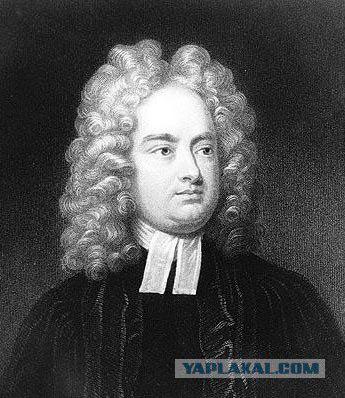
German composer Robert Schumann began to suffer bouts of madness at 24 years and 46 years, lost his mind completely. He was persecuted speaking tables, he saw the sounds, which are formed in the chords and musical phrases.
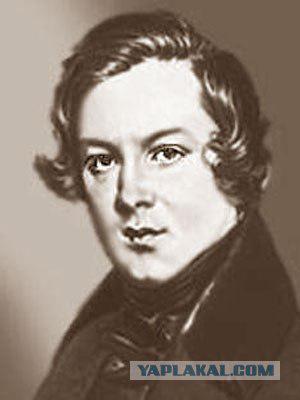
Swedish naturalist Linnaeus to 60 years fell into a paralytic state and meaningless.
Dobavleno1 in [mergetime] 1246790409 [/ mergetime]
English writer Harrington imagined thoughts fly out of his mouth in the form of birds and the bees, and clutched his broom to disperse them.
Italian philosopher Cardano imagined that he was being spied upon all governments, and meat, which he served, specially impregnated with wax and sulfur.
Mozart was suffering from delusions of persecution, considering also that the Italians want to poison him.
Exaggerated and focused sensitivity characteristic for the great people and freaks, as well as a temporary amnesia in those and others. Men of genius, like crazy alien moderation in all things. Many of the geniuses of abused and abusing alcohol.
So, Ibsen, the census began to crumple and tear everything turn up the arm, often destroying just written.
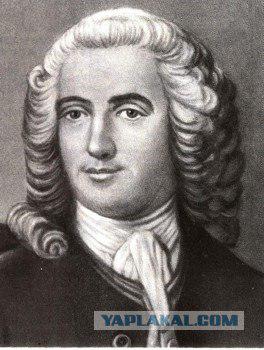
Van Gogh painted day and night, buckets drank absinthe, cut off his left ear and wrote a self-portrait in this way, and at the age of 37 years committed suicide. After his death, by the way, doctors has been published over 150 medical diagnoses that were delivered during the life of the great painter. Among other serious illnesses Aesculapius found Van Gogh's epilepsy, a brain tumor, manic depression, schizophrenia, magnesium deficiency, and even digitalis poisoning, which at that time were treated mental illness ...
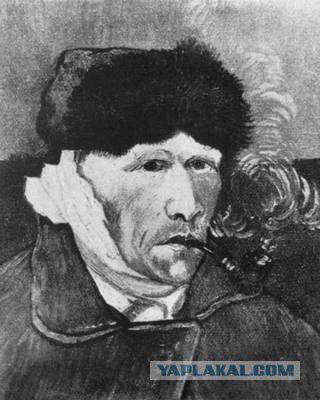
"Only great men have great faults, - said the famous La Rochefoucauld. George Sand added: That's where I sit, these great men. Good read their biographies, nice to see them cast in bronze or carved in marble, but it is bad to deal with them. They are angry, headstrong, despotic, bile, suspicious. »
"Schopenhauer wrote: Geniuses are not only intolerable in life, but cruel and immoral, it is difficult to have friends. On the heights of thought reigns alone. Thus he Schopenhauer once beat an old woman, and was by the court to pay her a lifetime pension. "
"The people of genius, just as crazy about, we can say that they all life are lonely, cold, indifferent to the responsibilities of a family man. Heine wrote about himself: My mental stimulation is rather a result of the disease, than genius. To little to console the suffering, I wrote poems. In these terrible night, mad with pain, my poor head tossed from side to side, causing ringing bells with cruel joviality worn dunce cap. And he concluded thinking about genius and madness words: Creativity - is a disease of the soul, just as the pearl is a disease of the mollusk. "Geniuses are unusual appearance has its habits and eccentricities.
For example, for some reason, Schiller could do only when the table he lay rotten apples.
Haydn did not work without her diamond ring he constantly saw it.
Wagner while writing another musical work laid out on chairs and other furniture pieces of bright silk, used to take them in hand and pull.
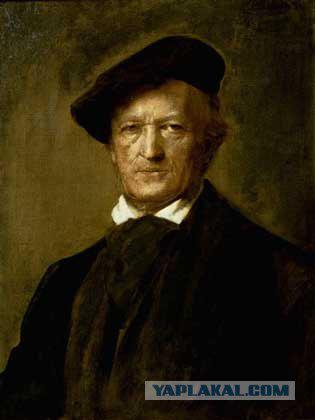
For successful work on the novel Zola tied himself to a chair.
Musset resigned his poems by candlelight, all alone, at a table where there were two instruments for its cute imaginary woman who was about to come and share his dinner.
Charlotte Bronte permanently detached from writing another novel, and was sent to clean potatoes.
Dumas-up inspiration love five times a full meal.
I love you, dear Mademoiselle, - Henri Matisse told his future wife. - But you should know that I will love even more the painting. The artist suffered from depression, insomnia, and sometimes wept in his sleep and woke up with an animal cry. One day, for no reason he suddenly appeared in the fear of going blind. He even learned to play the violin, to earn a living street musician when he lost his eyesight. Doctors in vain to convince him that he has nothing to fear, he has no eye diseases. But Matisse did not believe them. Before you begin painting, he felt a burning desire to strangle someone! And the creative process linked to the excision of the tumor in a patient with a knife and without anesthesia.
Flaubert during groaned with characters they portrayed. I laugh and cry, and that takes more steps to go quickly around the room and loudly chanting the words.
About Montesquieu told us that on the floor near the table where he was involved, it was possible to notice a permanent deepening of the twitching of their feet.
English writer houghtonite, doing literary work, while wielding a knife or scissors. During the vigil, he planed writers than a desk, a few chairs slashed, and once ispolosovannaya tucked under the arm of his wife's favorite dress.
On a par with the great thinkers obsessed characterized by a constant overflow of the brain with blood (gipperemiya), intense heat in the head and limb cooling, susceptibility to acute diseases of the brain and a weak sensitivity to cold.
For example, Balzac wrote his novels, standing barefoot on the chilly stone floor. Rousseau made his brain work harder, standing in the sun with his head uncovered.
Schiller, working on his compositions, always kept his feet in cold water. Poe could sit for hours at his desk and stare at him lying in front of a blank sheet of paper.
About as did Maeterlinck. Every morning he would sit at his desk for three hours, even if no one thought came to mind.
George Sand wrote every day until 11 o'clock, and if the novel ends at 10.30, then immediately starting a new, on which she worked for half an hour.
French fabulist Lafontaine, when he finds inspiration, rushed through the streets for hours, oblivious to the passers-by watched in amazement as he gesticulates, stomping feet, loudly shouting born row.
"Familiar watched in amazement as George Bernard Shaw, in his old age, wear rubber boots, buttoned all the buttons lined cloak and Dirt Bike, referring to members of the household, said: I'm going to write a play! And sent to the market, where it was very lively. Often he was seen in commuter trains with a notebook in hand, quickly sketching a line-by-line. »
Schubert, who lived only 31 years, my favorite product before make public, necessarily had to play ... on the comb.
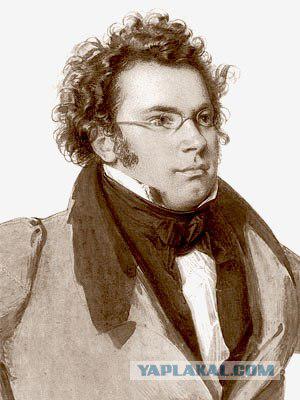
Dumas (father) wrote only on special square sheets. If this paper is not to provide or she ended up, it stopped working.
Anatole France, on the contrary, never garnered paper and wrote on Anything: on old letters, envelopes, invitations, even business cards. Distraction and forgetfulness of some geniuses are striking.
Of course, they are explained by a special concentration on work, when all seemed extraneous ceases to exist.
Diderot forget the days, months, years, and the names of loved ones.
Gogol and Goethe did not notice the danger of death during their work.
One amp, leaving his apartment, wrote in chalk on the doors at: Amper will be at home only in the evening. But back home earlier in the day. I read the inscription on his door and went back since forgotten that he is the Ampere. He constantly blowing his nose in a rag, which erased the chalk during the lectures, and plastered chalk excited gay students. & Quot;
Great Newton once hosted and wishing to treat them, I went into his office for wine. The guests are waiting, and the owner does not return. It turned out, went into the operating room, Newton so deeply pondered his next work, which had completely forgotten about friends. There is also the case when the Newton, having decided to cook an egg, I took the watch, noted the time and a few minutes later found that his hand holding an egg, and cook the clock. "When Newton wrote his principles, then, absorbed in his thoughts, he forgets to dress and eat. One day he had lunch, but did not notice it. And when he went by mistake to dine at another time, it was very surprised that someone ate his meals. At other times distracted scholar cost dearly. Once, when leaving the house, he had forgotten to extinguish the candle on the table and all his manuscripts - the fruit of many years of hard work - were burned in the fire. From this great physicist clouded his mind for a few months. »
"Another famous physicist Einstein met his friend and preoccupied, he said: Come to me tonight. I will, Professor Stimson. His friend, puzzled, said: But I have Stimson! Einstein replied: It does not matter, you still come! »
"Father of Russian Aviation Zhukovsky once speaking with a night out with friends in your own living room, suddenly he stood up, looking for his hat, and began to hastily leave, muttering: However, I sat up with you, go home!»
"The greatest thinkers of the ideas are born and suddenly develop so unconsciously as rash acts hurt. According to psychiatrists, there is no doubt that between mad during the seizure, and a man of genius, think and create their work, there is a complete similarity.
Here, for example, describes the state of Tasso doctor: a weak and irregular pulse, pale skin, cold, head hot, sore, eyes shining, bloodshot, restless, darting around. After a period of creativity is often the author himself did not understand what he expounded a moment ago. »
"The difference between genius and ordinary people is exquisite and almost morbid sensibility first.
Amp to the point vividly feel the beauty of nature, he almost died of happiness, he found himself once on the shores of Lake Geneva.
Dobavleno1 in [mergetime] 1246790584 [/ mergetime]
Chateaubriand could not remain indifferent to hear praise someone else, even his cobbler.
Schopenhauer was furious and refused to pay bills in hotels, if his name was written by two p. »
Researchers creative geniuses claim that they, as a rule, were poor pupils and students.
So, Liebig only through the influence of the Humboldt got to professor.
Gogol also received the chair. Everything else Gogol was certified as a dunce at school and varmint.
Pushkin was very little time to the Lyceum and wept on the lessons of arithmetic.
Leo Tolstoy on exams at the University of picked up units,
Chekhov twice a gymnasium remained in the second year ...
That's all ...
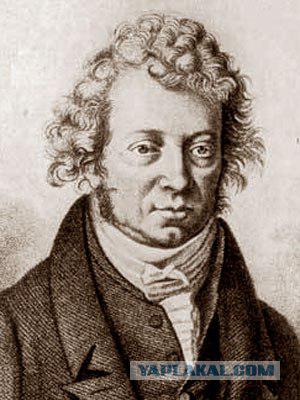
Source:
"Genius" - the Latin word (genius) and is the highest degree of talent and versatility. Geniuses made to admire, but contemporaries, as a rule, do not like them, sometimes even hate and envy, so that each of Mozart has to at least one of Salieri.
It is believed that a gifted person who has received the ability of nature all my life to get it blithely enjoying free gift. But in reality, these people got on with their creative abilities?
"For a long time, for example, the debate continues around the name of Jonathan Swift, author of Gulliver's immortal. And in the end, the doctors diagnosed him: Mad! "" In support of this theory usually gives three proofs. Firstly, the appointment shortly before his death the official trustees oversee his affairs because of mental incapacity. "Secondly, the progressive loss of memory, inability to recognize even close friends and acquaintances. Finally, efforts to create the first psychiatric hospital in Ireland, which he bequeathed all his considerable fortune, and which, according to evil tongues of his contemporaries, he was hoping to enter the first patient.

German composer Robert Schumann began to suffer bouts of madness at 24 years and 46 years, lost his mind completely. He was persecuted speaking tables, he saw the sounds, which are formed in the chords and musical phrases.

Swedish naturalist Linnaeus to 60 years fell into a paralytic state and meaningless.
Dobavleno1 in [mergetime] 1246790409 [/ mergetime]
English writer Harrington imagined thoughts fly out of his mouth in the form of birds and the bees, and clutched his broom to disperse them.
Italian philosopher Cardano imagined that he was being spied upon all governments, and meat, which he served, specially impregnated with wax and sulfur.
Mozart was suffering from delusions of persecution, considering also that the Italians want to poison him.
Exaggerated and focused sensitivity characteristic for the great people and freaks, as well as a temporary amnesia in those and others. Men of genius, like crazy alien moderation in all things. Many of the geniuses of abused and abusing alcohol.
So, Ibsen, the census began to crumple and tear everything turn up the arm, often destroying just written.

Van Gogh painted day and night, buckets drank absinthe, cut off his left ear and wrote a self-portrait in this way, and at the age of 37 years committed suicide. After his death, by the way, doctors has been published over 150 medical diagnoses that were delivered during the life of the great painter. Among other serious illnesses Aesculapius found Van Gogh's epilepsy, a brain tumor, manic depression, schizophrenia, magnesium deficiency, and even digitalis poisoning, which at that time were treated mental illness ...

"Only great men have great faults, - said the famous La Rochefoucauld. George Sand added: That's where I sit, these great men. Good read their biographies, nice to see them cast in bronze or carved in marble, but it is bad to deal with them. They are angry, headstrong, despotic, bile, suspicious. »
"Schopenhauer wrote: Geniuses are not only intolerable in life, but cruel and immoral, it is difficult to have friends. On the heights of thought reigns alone. Thus he Schopenhauer once beat an old woman, and was by the court to pay her a lifetime pension. "
"The people of genius, just as crazy about, we can say that they all life are lonely, cold, indifferent to the responsibilities of a family man. Heine wrote about himself: My mental stimulation is rather a result of the disease, than genius. To little to console the suffering, I wrote poems. In these terrible night, mad with pain, my poor head tossed from side to side, causing ringing bells with cruel joviality worn dunce cap. And he concluded thinking about genius and madness words: Creativity - is a disease of the soul, just as the pearl is a disease of the mollusk. "Geniuses are unusual appearance has its habits and eccentricities.
For example, for some reason, Schiller could do only when the table he lay rotten apples.
Haydn did not work without her diamond ring he constantly saw it.
Wagner while writing another musical work laid out on chairs and other furniture pieces of bright silk, used to take them in hand and pull.

For successful work on the novel Zola tied himself to a chair.
Musset resigned his poems by candlelight, all alone, at a table where there were two instruments for its cute imaginary woman who was about to come and share his dinner.
Charlotte Bronte permanently detached from writing another novel, and was sent to clean potatoes.
Dumas-up inspiration love five times a full meal.
I love you, dear Mademoiselle, - Henri Matisse told his future wife. - But you should know that I will love even more the painting. The artist suffered from depression, insomnia, and sometimes wept in his sleep and woke up with an animal cry. One day, for no reason he suddenly appeared in the fear of going blind. He even learned to play the violin, to earn a living street musician when he lost his eyesight. Doctors in vain to convince him that he has nothing to fear, he has no eye diseases. But Matisse did not believe them. Before you begin painting, he felt a burning desire to strangle someone! And the creative process linked to the excision of the tumor in a patient with a knife and without anesthesia.
Flaubert during groaned with characters they portrayed. I laugh and cry, and that takes more steps to go quickly around the room and loudly chanting the words.
About Montesquieu told us that on the floor near the table where he was involved, it was possible to notice a permanent deepening of the twitching of their feet.
English writer houghtonite, doing literary work, while wielding a knife or scissors. During the vigil, he planed writers than a desk, a few chairs slashed, and once ispolosovannaya tucked under the arm of his wife's favorite dress.
On a par with the great thinkers obsessed characterized by a constant overflow of the brain with blood (gipperemiya), intense heat in the head and limb cooling, susceptibility to acute diseases of the brain and a weak sensitivity to cold.
For example, Balzac wrote his novels, standing barefoot on the chilly stone floor. Rousseau made his brain work harder, standing in the sun with his head uncovered.
Schiller, working on his compositions, always kept his feet in cold water. Poe could sit for hours at his desk and stare at him lying in front of a blank sheet of paper.
About as did Maeterlinck. Every morning he would sit at his desk for three hours, even if no one thought came to mind.
George Sand wrote every day until 11 o'clock, and if the novel ends at 10.30, then immediately starting a new, on which she worked for half an hour.
French fabulist Lafontaine, when he finds inspiration, rushed through the streets for hours, oblivious to the passers-by watched in amazement as he gesticulates, stomping feet, loudly shouting born row.
"Familiar watched in amazement as George Bernard Shaw, in his old age, wear rubber boots, buttoned all the buttons lined cloak and Dirt Bike, referring to members of the household, said: I'm going to write a play! And sent to the market, where it was very lively. Often he was seen in commuter trains with a notebook in hand, quickly sketching a line-by-line. »
Schubert, who lived only 31 years, my favorite product before make public, necessarily had to play ... on the comb.

Dumas (father) wrote only on special square sheets. If this paper is not to provide or she ended up, it stopped working.
Anatole France, on the contrary, never garnered paper and wrote on Anything: on old letters, envelopes, invitations, even business cards. Distraction and forgetfulness of some geniuses are striking.
Of course, they are explained by a special concentration on work, when all seemed extraneous ceases to exist.
Diderot forget the days, months, years, and the names of loved ones.
Gogol and Goethe did not notice the danger of death during their work.
One amp, leaving his apartment, wrote in chalk on the doors at: Amper will be at home only in the evening. But back home earlier in the day. I read the inscription on his door and went back since forgotten that he is the Ampere. He constantly blowing his nose in a rag, which erased the chalk during the lectures, and plastered chalk excited gay students. & Quot;
Great Newton once hosted and wishing to treat them, I went into his office for wine. The guests are waiting, and the owner does not return. It turned out, went into the operating room, Newton so deeply pondered his next work, which had completely forgotten about friends. There is also the case when the Newton, having decided to cook an egg, I took the watch, noted the time and a few minutes later found that his hand holding an egg, and cook the clock. "When Newton wrote his principles, then, absorbed in his thoughts, he forgets to dress and eat. One day he had lunch, but did not notice it. And when he went by mistake to dine at another time, it was very surprised that someone ate his meals. At other times distracted scholar cost dearly. Once, when leaving the house, he had forgotten to extinguish the candle on the table and all his manuscripts - the fruit of many years of hard work - were burned in the fire. From this great physicist clouded his mind for a few months. »
"Another famous physicist Einstein met his friend and preoccupied, he said: Come to me tonight. I will, Professor Stimson. His friend, puzzled, said: But I have Stimson! Einstein replied: It does not matter, you still come! »
"Father of Russian Aviation Zhukovsky once speaking with a night out with friends in your own living room, suddenly he stood up, looking for his hat, and began to hastily leave, muttering: However, I sat up with you, go home!»
"The greatest thinkers of the ideas are born and suddenly develop so unconsciously as rash acts hurt. According to psychiatrists, there is no doubt that between mad during the seizure, and a man of genius, think and create their work, there is a complete similarity.
Here, for example, describes the state of Tasso doctor: a weak and irregular pulse, pale skin, cold, head hot, sore, eyes shining, bloodshot, restless, darting around. After a period of creativity is often the author himself did not understand what he expounded a moment ago. »
"The difference between genius and ordinary people is exquisite and almost morbid sensibility first.
Amp to the point vividly feel the beauty of nature, he almost died of happiness, he found himself once on the shores of Lake Geneva.
Dobavleno1 in [mergetime] 1246790584 [/ mergetime]
Chateaubriand could not remain indifferent to hear praise someone else, even his cobbler.
Schopenhauer was furious and refused to pay bills in hotels, if his name was written by two p. »
Researchers creative geniuses claim that they, as a rule, were poor pupils and students.
So, Liebig only through the influence of the Humboldt got to professor.
Gogol also received the chair. Everything else Gogol was certified as a dunce at school and varmint.
Pushkin was very little time to the Lyceum and wept on the lessons of arithmetic.
Leo Tolstoy on exams at the University of picked up units,
Chekhov twice a gymnasium remained in the second year ...
That's all ...

Source:




